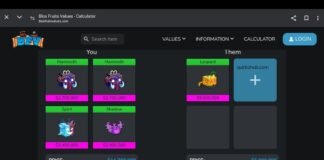If you’re interested in learning about Mıllıeyt, you’ve come to the right place. MilliEyeT is a Turkish word that translates to “nationality” or “nationalism” in English. It’s a concept that has played a significant role in Turkish politics, culture, and society for many years.
The idea of Milliyet has a deep history in Turkey, with roots dating back to the Ottoman Empire. The concept has evolved over time, and today it’s a complex idea that can be interpreted in different ways depending on who you ask.
Some people see MilliEyeT as a unifying force that brings together people of different backgrounds and beliefs, while others view it as a divisive concept that can be used to exclude certain groups.
Regardless of your perspective on MilliEyeT, it’s an important concept to understand if you want to gain a deeper understanding of Turkish culture and society. In this article, we’ll explore the etymology of Milliyet, its political and sociological significance, the legal framework that surrounds it, and its cultural importance.
Key Takeaways
Table of Contents
- Milliyet is a Turkish word that means “nationality” or “nationalism.”
- The concept of Milliyet has a long history in Turkey and has evolved over time.
- Milliyet is a complex concept that can be interpreted in different ways depending on who you ask.
Etymology of Mıllıeyt
Historical Linguistic Roots
Milliyet is a Turkish word that has its roots in the Arabic word “millah,” which means “nation” or “community.” The word “milliyet” was first used in the Ottoman Empire to refer to the concept of national identity and belonging. At the time, the Ottoman Empire was a multi-ethnic and multi-religious state, and the idea of a shared national identity was a new and important concept.
The concept of milliyet gained even more significance during the early 20th century, as the Ottoman Empire was dissolved and the modern state of Turkey was established. At this time, the idea of a shared Turkish national identity became even more important, and the word “milliyet” was used to refer specifically to Turkish national identity.
Modern Usage and Interpretation
Today, the word “Mıllıeyt” is still used in Turkey to refer to national identity and belonging. However, its meaning has evolved over time, and it can now also refer to other aspects of identity, such as ethnicity, language, and culture.
In addition, the word “milliyet” is often used in political discourse, particularly in debates around issues of national identity and minority rights.
Milliyet in Political Context
National Identity and Citizenship
Mıllıeyt plays a significant role in shaping national identity and citizenship in Turkey. It refers to the shared cultural, historical, and social values that bind the Turkish people together. The concept of milliyet has been used to define who is considered a citizen of Turkey and who is not. It has been used to exclude minority groups, such as Kurds and Armenians, from full citizenship rights.
Ethnicity and Milliyet
Ethnicity is closely tied to milliyet in Turkey. The dominant milliyet in Turkey is Turkishness, which is defined in terms of ethnicity, language, and religion. This has led to discrimination against minority groups who do not fit this definition.
The Kurdish minority, for example, has been denied the right to use their own language and practice their own culture.
The concept of milliyet has been used to justify discriminatory policies towards minority groups. It has been used to promote a homogenous Turkish identity at the expense of diversity and inclusivity.
However, there have been efforts to redefine milliyet in a more inclusive way, one that recognizes the diversity of the Turkish people and promotes equality for all citizens.
Sociological Perspectives on Mıllıeyt
Collective Identity Formation
Milliyet, as a concept, has been studied from various sociological perspectives. One such perspective is collective identity formation.
According to this perspective, MilliEyeT plays a crucial role in the formation of collective identities. It is argued that the sense of belonging to a particular group or nation is a fundamental aspect of human social identity. Milliyet, as a concept, provides individuals with a sense of belongingness and identity that is tied to their nation or ethnic group.
Milliyet in Social Movements
Another sociological perspective on mıllıeyt is its role in social movements.
Milliyet has been used as a tool for mobilizing people to support various social movements. For instance, in the case of the Turkish War of Independence, milliyet was used to mobilize people to fight against foreign powers and establish an independent Turkish state.
Similarly, milliyet has been used in other social movements such as the Kurdish independence movement and the Palestinian liberation movement.
Legal Framework of Mıllıeyt
National Legislation
In Turkey, the legal framework for MilliEyeT is established by the Turkish Nationality Law. This law outlines the criteria for acquiring and losing Turkish nationality, as well as the rights and obligations that come with it.
Under the Turkish Nationality Law, a person can acquire Turkish nationality by birth, descent, or naturalization. The law also allows for the revocation of Turkish nationality in certain circumstances, such as if a person acquires another nationality without permission from the Turkish government.
International Law Implications
Turkey is a signatory to several international treaties and conventions related to nationality and statelessness, including the 1954 Convention relating to the Status of Stateless Persons and the 1961 Convention on the Reduction of Statelessness.
These treaties establish guidelines for the treatment of stateless persons and the prevention of statelessness.
Additionally, Turkey is a member of the European Union and has adopted several EU directives related to nationality and citizenship. These directives aim to harmonize the laws of EU member states related to nationality and citizenship, and provide protections for EU citizens who exercise their right to free movement within the EU.
Cultural Significance of Mıllıeyt
Milliyet in Literature
Milliyet has played a significant role in Turkish literature, influencing the works of many prominent writers. It has been a source of inspiration for authors who sought to capture the essence of Turkish identity and patriotism in their writing.
Some of the most famous works that feature Milliyet as a central theme include “Milliyetçilik Üzerine” by Ziya Gökalp and “Milli Edebiyat” by Yahya Kemal Beyatlı.
Representation in Media
Milliyet has also been a recurring theme in Turkish media, particularly in news and political commentary. It has been used to describe the shared cultural identity of the Turkish people and to promote a sense of national unity.
In recent years, Milliyet has also been a topic of debate, with some arguing that it has been used to justify exclusionary policies and nationalist rhetoric. Also read about Archivebate, Cavazaque and Streamseast.
Conclusion
You have now learned about [mıllıeyt], a term that refers to the generation of people born around the turn of the millennium. This group of individuals has grown up in a world vastly different from that of previous generations. They have had access to technology and information at their fingertips.
As a result, [mıllıeyt] has been shaped by their experiences and has unique characteristics that distinguish them from other generations. They are often described as tech-savvy, open-minded, and socially conscious.
However, not all individuals within mıllıeyt share the same experiences or characteristics. Like any generation, there is diversity within the group, and not everyone fits neatly into the same mold.
mıllıeyt is a fascinating group to study and has already made a significant impact on society.
As they continue to enter the workforce and become leaders in their respective fields, it will be interesting to see how they shape the world around them. We hopw you know the details about mıllıeyt now, Visit Doyen Marketers again for more informative content.
















